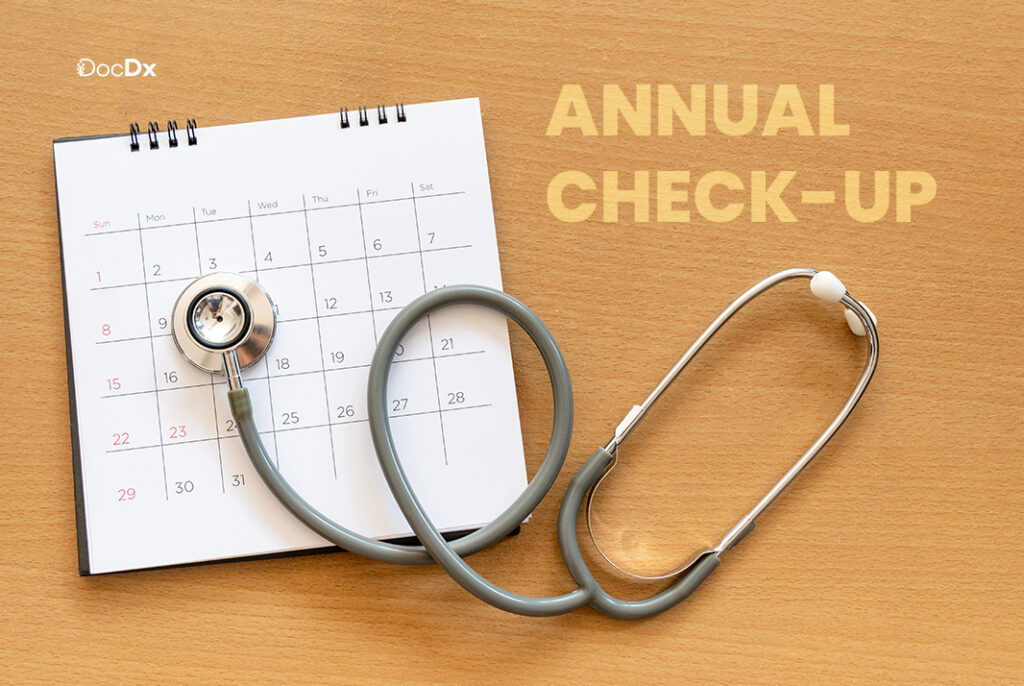An annual check-up might not be the most thrilling appointment on your calendar—but it’s one of the most important. Whether you’re feeling great or noticing minor symptoms, a primary care check-up gives your doctor the opportunity to catch issues early, monitor your overall health, and tailor recommendations to keep you feeling your best.
This guide will walk you through what to expect during your visit, the tests typically included, how to prepare, and why annual check-ups are a key component of lifelong health.
📌 Related Read: Learn how Annual Physical Exams Differ for People with Pre-Existing Conditions
Why Annual Check-Ups Matter
1. Prevention is Better Than Cure
Your annual visit isn’t just for when something feels wrong—it’s a proactive opportunity to:
- Catch diseases in early, more treatable stages
- Discuss preventive measures based on your age, lifestyle, and family history
- Track metrics like weight, blood pressure, cholesterol, and blood sugar
2. Building a Relationship with Your Doctor
When you see your primary care provider regularly, they understand your baseline health and can detect subtle changes over time. That relationship makes it easier to get personalized care.
📌 Explore Our Full Primary Care Services designed to help you stay ahead of illness.
Ready to Stay Ahead of Health Issues? Book Your Annual Check-Up Now
Prioritize your health with a simple, comprehensive visit.
What Happens During an Annual Check-Up?
1. Medical History Review
Your provider will ask about:
- Any symptoms or concerns
- Medications, supplements, and allergies
- Family health history
- Lifestyle habits (diet, sleep, activity, substance use)
This helps your doctor understand the bigger picture and assess your risk factors.
2. Physical Exam
You can expect a head-to-toe exam, including:
- Vital signs (blood pressure, temperature, pulse, respiration)
- Heart and lung exam
- Abdominal palpation
- Skin, eyes, and reflex checks
3. Common Screening Tests
Depending on your age, gender, and health history, your provider may order:
✅ Blood work (e.g., cholesterol, glucose, thyroid)
✅ Urinalysis
✅ Cancer screenings (e.g., mammogram, Pap smear, prostate exam)
✅ Mental health screening
✅ Bone density scans (for older adults)
📌 Need a refresher on age-specific exams? Check out our blog on Physical Exam Guidelines for Older Adults
4. Immunizations and Vaccinations
Your annual check-up is the perfect time to catch up on recommended vaccines:
✅ Flu shot
✅ COVID-19 booster
✅ Tdap (Tetanus, Diphtheria, Pertussis)
✅ Pneumonia and shingles (for older adults)
📌 Learn more about Vaccines You Get During an Annual Physical Exam
How to Prepare for Your Annual Check-Up
1. Bring Important Information
✅ A list of medications and supplements
✅ Your insurance card
✅ Any recent test results or hospital records
✅ A list of questions or symptoms you want to discuss
2. Dress Comfortably
Wear loose clothing and easily removable layers for quick access during the physical exam.
3. Be Honest and Thorough
Don’t hold back when it comes to sensitive topics like sexual health, mental well-being, or substance use. Your doctor is there to help, not to judge.
Conclusion
Your annual check-up is more than just a routine—it’s your opportunity to invest in long-term health. From identifying risks early to tracking progress and adjusting your care plan, this visit plays a vital role in your overall wellness strategy.
At DocDx, we make it easy to stay on top of your health with compassionate care, advanced testing, and convenient scheduling.
💬 Got questions or tips for check-up prep? Drop them in the comments!




